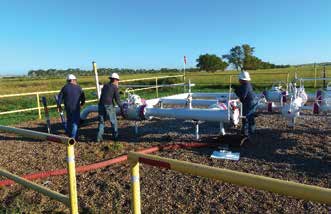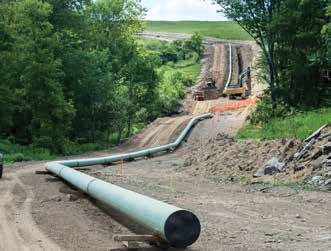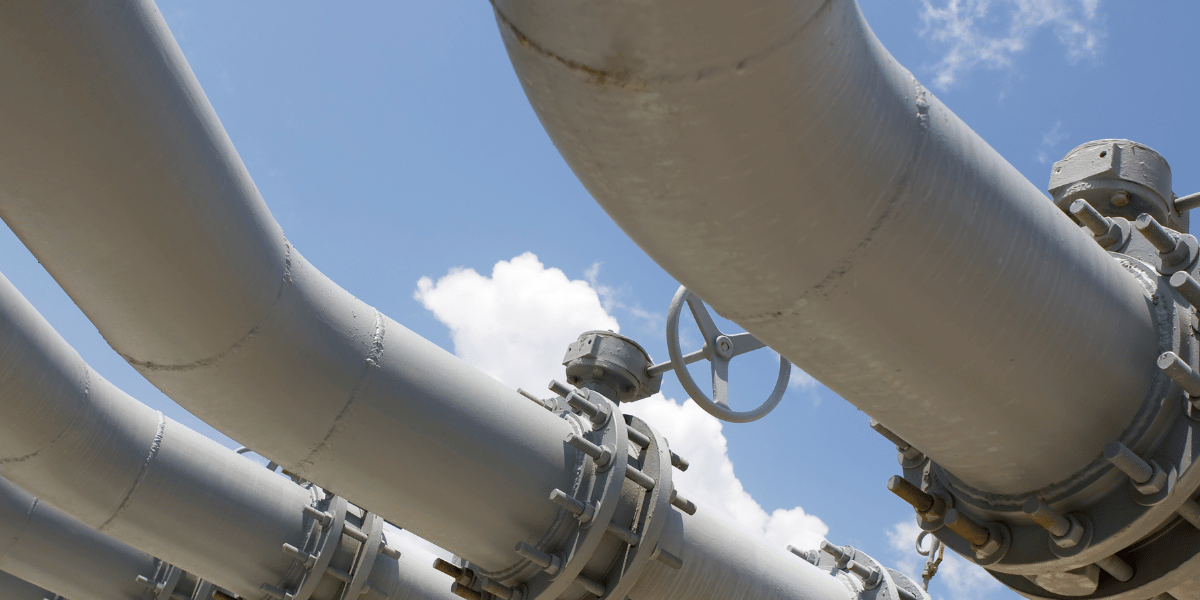A consortium of gathering pipeline operators in North Dakota has initiated a program called “iPIPE” (ipipepartnership.com) to develop and demonstrate new and emerging technologies that hold promise to improve leak detection and prevention in gathering pipelines in America’s oil fields. The four-year program is investing several million dollars toward this effort.
Led by founders Hess Corporation, Equinor (formerly known as Statoil), Oasis Midstream Partners, Goodnight Midstream, ONEOK, and Andeavor, the program solicits proposals from technology providers to co-develop and demonstrate their promising technologies collaboratively with these pipeline operators.
As such, this program presents a unique opportunity for disruptive technology developers.
Beyond the offer of capital to finance the development of emerging technologies, the program provides a valuable real-world platform in which these technologies can be demonstrated to the very customers who may eventually adopt them for use in their pipeline fleets.
It is anticipated that this program will assist technology providers in bridging what is frequently referred to as the “valley of death” on the road to commercialization, providing the opportunity to engage with industry to refine the product for specific commercial application.
Demonstrations are executed on operating liquids gathering pipelines volunteered by iPIPE members in North Dakota. The goal of these demonstrations is to evaluate the feasibility and cost-effectiveness of new technologies to reduce or eliminate pipeline leaks. It is not the intent of the program to demonstrate technologies that are commonly employed and already commercially proven and viable, but rather to develop new tools that will aid in safe operation of pipelines nationwide.

The Selection Process
The program employs a selection process modeled after the popular CNBC television program, “Shark Tank.” Vetted technology providers present promising new technologies to a panel of pipeline industry experts. The expert panel hears a 20-minute presentation of a technology and the proposed development plan and then interactively discusses the approach with the presenter. Following the presentations, the panel selects the technologies to fund for development and demonstration.
Unlike the television version of “Shark Tank,” iPIPE does not typically require a financial stake in the success of the technology provider. Instead, iPIPE members benefit from increasing the number of tools available to them to conduct safe pipeline operations.

Benefits to Industry
In North Dakota, where the shale oil revolution has resulted in approximately 17,000 wells installed across 15,000 square miles to date, pipelines are a safe and necessary means of transporting the gas, crude oil, and water produced from these wells. With over 25,000 miles of pipeline currently installed, pipeline leaks have occurred, and oil producers and pipeline operators want solutions for a variety of reasons:
• A cooperative relationship with landowners is imperative to installation of new wells and the pipelines that connect them.
• Significant financial costs are incurred when pipeline spills necessitate expensive cleanup activities.
• Companies encounter pressure from stockholders to avoid negative publicity when spills happen.
• Revenue is lost when the crude oil they are in business to produce does not make it to market.
Initial Round of Technology Development
In May 2018, the iPIPE Program held its first “Shark Tank” event. Seven technology providers from around the world were selected to present to the expert panel. Two of these technology providers were selected for funding and co-development of their technologies during 2018: Satelytics of Toledo, Ohio, and Ingu Solutions of Calgary, Alberta.
“With tens of thousands more wells expected in North Dakota alone in coming years, oil producers and pipeline operators that strive to be more profitable and better stewards of the environment need access to the cutting-edge technologies iPIPE is developing.”

Satelytics is a young company that touts application of advanced machine learning algorithms to mountains of data obtained from satellites, commercial overflights, drones, and stationary measurements. Satelytics’ objective is to identify hydrocarbon and produced water pipeline leaks early on and alert pipeline operators quickly so that appropriate actions may be taken to stop the leaks and limit environmental impact.
Satelytics is currently monitoring a 1000-square-mile area in west central North Dakota where pipeline assets of all iPIPE members are located. Weekly, alerts of potential hydrocarbon releases are delivered to iPIPE members who then investigate the sites and provide feedback to refine the algorithms. The goal is to identify any hydrocarbon leaks immediately, with a very low rate of false positives. Next, the company will adapt its algorithms to identify produced water leaks as well.
Ingu Solutions is currently demonstrating its Pipers inline inspection technology on a variety of liquids gathering pipelines in North Dakota. Pipers are small, golf ball-sized sensors that flow freely with pipeline fluids. Pipers measure pipeline wall thickness variations, listen for pipeline leaks, and plot locations of pipeline centerlines using a variety of miniaturized sensors and onboard data storage, and are quickly analyzed after being sent through the pipelines. This technology is intended to serve markets not currently served by more traditional inline inspection tools known as smart pigs.

Future Rounds of Technology Development
The iPIPE Program is administered through the Energy & Environmental Research Center (EERC), which accepts proposal submissions, coordinates activities leading to selection of specific technologies for demonstration, and serves as an independent evaluator of demonstration results. The EERC assists proposers in refining their approach to meet the specific needs of gathering pipeline operators and the challenges associated with pipeline operations in North Dakota’s diverse geography and climate, thus improving the technology’s chances for success.
Any development-phase technology that addresses improved pipeline leak detection and/or prevention will be considered. Technologies currently under consideration fall into the categories of inline inspection, drone-based leak detection, artificial intelligence approaches to pipeline leak detection and health assessment, fiber-optic approaches to pipeline leak detection and health assessment, self-healing pipeline materials, and advanced instrumentation techniques, among others.
Call for Additional Consortium Members
The six founding companies and the state of North Dakota are actively recruiting additional members to join the iPIPE Program. New members bring additional financial resources, which fund expansion of the number of technologies that can be investigated, as well as greater opportunity to demonstrate technologies successfully developed through the program.
Looking to the Future
With tens of thousands more wells expected in North Dakota alone in coming years, oil producers and pipeline operators that strive to be more profitable and better stewards of the environment need access to the cutting-edge technologies iPIPE is developing.
Jay C. Almlie is a Principal Engineer and Mid/Downstream Oil & Gas Group Lead at the EERC. He can be reached at jalmlie@undeerc.org.

Comments